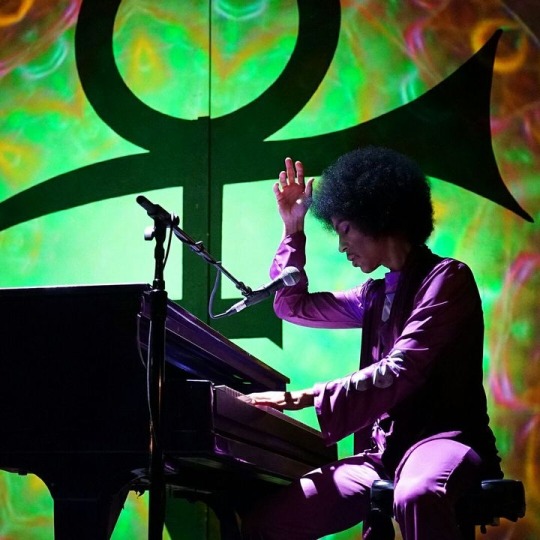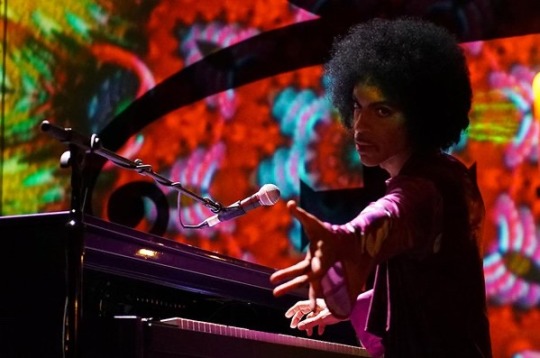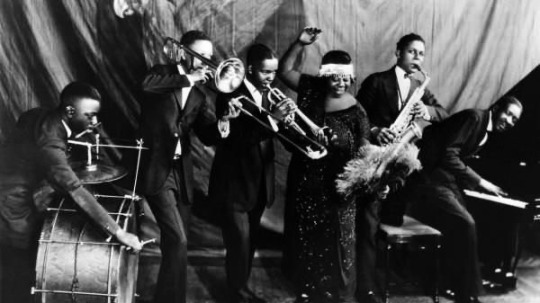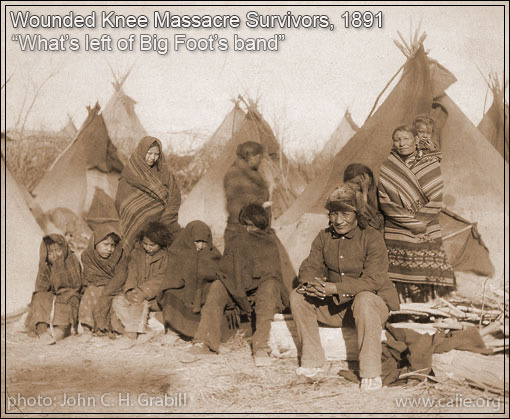#most of my political opinions are colored by the fact that i'm a southern black bitch. so
Explore tagged Tumblr posts
Text
honestly, this whole chappell roan political discourse is very...white
#that's the nicest way i can put this#disclaimer that Everything i know about her is against my will. but no one wants to stop bringing it up#most of my political opinions are colored by the fact that i'm a southern black bitch. so#i'm just way too southern and black to give a shit about Any of this. and yet i can't avoid it ://#i also wish i could view politics through a white midwestern lens. but i can't!#rambles
4 notes
·
View notes
Text
Focusing on Prince and the song Avalanche: Lesson learned or....??


Hi my music lovers, today we are celebrating the birthday of the undisputed music legend and virtuoso: Prince Rogers Nelson. Since all that is happening these days, I wanted to offer you guys the chance to reflect on these crucial issues. Therefore I chose to focus only on one song in Prince's vault: Avalanche. In my opinion, this piece is quite relevant to what is happening these days. I really hope I do Prince justice. I hope we can learn something from this article and the lesson Prince taught us. Should there be anything, I missed do not think twice to let me know or contact me. Enjoy the article.
In 2002, Prince released One Nite Alone (Solo Piano and Voice by Prince). As the title suggests, the only accompaniment in this album is the piano. Today I want to offer you the chance to reflect on the song Avalanche. Avalanche. The message delivered with this song is compelling, and the lyrics were magistrally written. Moreover, as many people know, Prince was an avid reader and an extremely educated person who had a vast knowledge not only about music but also about history, in this case. Indeed, with these words, the Artist is referring to some historical events to create one of the most MONUMENTAL protests songs in music history. Before I explain this total MASTERPIECE, I need to mention some crucial points. I will never stress enough about this. We all know that Prince was a black man. However, the fact that he, in some interviews, said things like "I was brought up in a black and white world. Black and white, night and day, rich and poor. I always said that one day I was going to play all kinds of music and not be judged for the color of my skin, but the quality of my work" or quoting his song Controversy "I wish there was no black or white" etcetera... It does not mean he was not conscious and aware or proud of being black. This does not mean that he was not aware of what black people had and still have to endure and go through. Indeed, Prince was extremely knowledgeable of everything that I mentioned, and he was proud of being black, and this is something significantly present in his music, in his sense of style, in his words, lyrics, music videos, concerts, and movies. I'm making this point because I have overheard too many people accusing Prince of not embracing his blackness or even being biracial as the new york times erroneously claimed. None of these things are true. I also heard that the Artist was not aware of what black people had and still are going through and that his music was not "politicized enough." This is another big fat lie. This song is proof. Therefore, before writing and describing this MONUMENTAL song, I thought I needed to re-emphasize this significant point. By the way, Prince's mother was NOT Italian. She was a beautiful black woman. Furthermore, as already mentioned, Artist had extensive historical knowledge and was also conscious and aware of how black people have always been exploited and treated. Moreover, Prince was accustomed to speaking his mind and saying what he meant, and just by reading the superlative and poignant lyrics, we could see that the Artist was quite straight-forwarded in writing this piece. Indeed:
He was not or never had been in favor
Of setting are people free
If it wasn't for the thirteenth Amendment
We woulda been born in slavery
He was not or never had been in favor
Of letting us vote, so you see...
Abraham Lincoln was a racist who said
"You cannot escape from history "Like the snow comin' down the mountain
That landed on Wounded Knee
Nobody wants to take the weight
The responsibilityHear the joyous sound of freedom
The Harlem Renaissance
Hear Duke Ellington and his band
Kick another jungle jam
Ooh, do you wanna dance?
Who's that lurking in the shadows?
Mr. John Hammond with his pen in hand...
Sayin' "Sign you're kingdom over to me
And be known throughout the land!"
But, you ain't got no money, you ain't got no cash
So you sign yo name, and he claims innocence
Just like every snowflake in an avalanche...Like the snow comin' down the mountain
That landed on Wounded Knee
Nobody wants to take the weight
The responsibility

This masterpiece begins with a quote taken from the 4th Lincoln-Douglas debate held in Charleston, South Carolina, on September 18, 1858. Lincoln opened his discussion with these words:
"While I was at the hotel to-day, an elderly gentleman called upon me to know whether I was really in favor of producing a perfect equality between the (slur) and white people. [Great Laughter.] While I had not proposed to myself on this occasion to say much on that subject, yet as the question was asked me, I thought I would occupy perhaps five minutes in saying something regarding it. I will say then that I am not, nor ever have been, in favor of bringing about in any way the social and political equality of the white and black races, [applause]-that I am not nor ever have been in favor of making voters or jurors of (slur), nor of qualifying them to hold office, nor to intermarry with white people. I will say in addition to this that there is a physical difference between the white and black races, which I believe will forever forbid the two races living together on terms of social and political equality. And since they cannot so live, while they do remain together there must be the position of superior and inferior, and I as much as any other man is in favor of having the superior position assigned to the white race."
This was just the beginning of the speech Lincoln gave, and the words bolded are the exact beginning of the song by Prince (disclaimer: I replaced the racial slurs with this (slur) since I do not want any slurs on my platform). Moreover, as we can see in this song, the Artist was calling out the former President Abraham Lincoln for being racist. As you can see from this speech, HE REALLY WAS A RACIST. Moving on with the speech, Lincoln also said that he was not against slavery, and therefore he did not want to abolish it. Additionally, Prince mentioned the thirteenth Amendment. Before I report the Amendment, I believe it is important to contextualize it. What I am about to write will show one more time that Lincoln was a stone-cold racist, unlike many people were taught in schools. So, during the Civil War, the South USA (which economy was unfortunately still based on slaves working in plantations), wanted to keep a balance of free and slave states to maintain its political power in Congress. Southern slaveholders feared the loss of control for many reasons, including a rational fear that if Northern abolitionists had eventually swayed their representatives to vote to abolish slavery, the South wouldn't have had the votes to stop it. So, on September 22, 1862, President Lincoln warned the Confederate states that if they did not rejoin the Union before January 1, 1863, he would free their slaves. If they had timely surrendered, he would not have issued the Emancipation Proclamation. Therefore, on January 1, 1963, Lincoln "proclaimed" the "end of slavery." Bear in mind that this was as much an act of political/military strategy rather than moral courage.
Additionally, the Emancipation Proclamation freed only slaves held in the eleven Confederate states that had seceded, and only in the portion of those states not already under Union control. Slavery was left untouched in the loyal border states. The Proclamation also expressly exempted parts of the Confederacy (the Southern secessionist states) that had already come under Northern control. Most important, the freedom it promised depended upon the Union (United States) military victory. The actual abolition of slavery was achieved when the Thirteenth Amendment was ratified on December 6, 1865. The first section of the Amendment declares, "Neither slavery nor involuntary servitude, except as a punishment for crime where of the party shall have been duly convicted, shall exist within the United States, or any place subject to their jurisdiction.". In addition to everything mentioned, the second segment of the speech I bolded is about the right to vote. Eventually, the Artist ends these verses accusing Lincoln of being racist, saying that it is not possible to escape from history. I must say that Lincoln really was A RACIST, and we have always been taught history the wrong way. I also must say that despite the abolition of slavery, black people were never really free, for racism was and still is one of the biggest plagues not just in the USA but all over the world and what we have seen until now is the proof.

Moreover, in the next verses, the Artist mentioned the Harlem Renaissance. For those who do not know that was, I will give a quick explanation of it. The Harlem Renaissance was a cultural, literary, and intellectual movement that fostered a new black cultural identity. This movement flourished in Harlem, New York, after World War I and ended around 1935 during the Great Depression. The movement raised significant issues affecting the lives of African Americans through various forms of literature, art, music, drama, painting, sculpture, movies, and protests. Voices of demonstration and ideological promotion of civil rights for African Americans inspired and created institutions and leaders who served as mentors to aspiring writers. The Harlem Renaissance arose from a generation that had lived through the gains and losses of Reconstruction after the American Civil War. Sometimes the parents or grandparents of those who lived during that historical period were slaves. Many people who lived in the Harlem Renaissance were part of the Great Migration. They moved out of the South into the black neighborhoods of the North and Midwest of the USA. African Americans sought a better standard of living and relief from the institutionalized racism in the South. Others were people of African descent from racially stratified communities in the Caribbean who came to the United States hoping for a better life. Uniting, most of them were their convergence in Harlem, New York City. Furthermore, Harlem was the center of a musical evolution that uncovered amazing talents and created a unique sound that had yet to be paralleled. Jazz was the newest sound, and it attracted both blacks and whites to go to nightclubs like the Savoy Ballroom to hear artists like Duke Ellington, Billie Holiday, and Miles Davis. Jazz was a result of the Harlem Renaissance, which originated from the musical minds of extraordinarily talented African American people. The genre includes traits that survived from West African American music, black folk music forms developed in the New World. In his song, Prince was indeed referring to jazz music and one of its most relevant and most brilliant artists: Sir. Duke Ellington. In the next lines, we see the Artist mentioning John Hammond. Hammond was a white talent scout, record producer, and music critic. This is another excellent example of how history has been distorted. Indeed, if you look upon the net, you will find that this man fought against segregation and racism. However, if you read Frank Kokofsky's book, John Coltrane and the Jazz Revolution of the 1960s, you will learn the truth about the political economy of white domination over black music. In particular, Kokofsky focuses on the relationship between John Hammond, Columbia Records, and the Artist Bessie Smith. Indeed, as Kokofsky writes:
"The first and most important point to emphasize is that, as author Chris Albertson reveals in his biography of Bessie Smith, Hammond signed the singer to a series of contracts with Columbia Records that gave her a small, fixed fee for each performance she recorded and no royalties. Such contracts were apparently standard practice with the executive, for Billie Holiday unequivocally stated in her autobiography, Lady Sings the Blues: 'Later on John Hammond paired me up with Teddy Wilson and his band for another record session. This time I got thirty bucks for making half a dozen sides.' When she protested about this arrangement, it was, according to her, a Columbia executive named Bernie Hanighen – and not John Hammond – 'who really went to bat for me' and 'almost lost his job at Columbia fighting for me.'"
Hear the joyous sound of freedom
The Harlem Renaissance
Hear Duke Ellington and his band
kick another jungle jam
Ooh, do u wanna dance?
Who's that lurking in the shadows?
Mr. John Hammond with his pen in hand...
sayin' "Sign ur kingdom over 2 me
and b known throughout the land!"
But, u ain't got no money, U ain't got no cash,
So u sign yo name and he claims innocence
just like every snowflake in an avalanche.
This situation is quite familiar, isn't it? Perhaps Prince had heard or read about this, and therefore he decided to add this fact to this masterpiece.

Last but not least, another relevant part of this song is the chorus. Indeed, with this brilliantly written chorus, Prince is referring to the massacre of Wounded Knee, where more than 350 Native-American were killed. Indeed, On the morning of December 29, 1890, Chief Spotted Elk (Big Foot), leader of a group of some 350 Minneconjou Sioux, sat in a makeshift camp along the banks of Wounded Knee Creek. The group was surrounded by U.S. troops sent to arrest him and disarm his followers. The atmosphere was tense since an order to arrest Chief Sitting Bull at the Standing Rock Reservation just 14 days earlier had resulted in his murder, prompting Big Foot to lead his people to the Pine Ridge Agency for a safe haven. Alerted to the band's Ghost Dance activities, General Nelson Miles commanded Major Samuel Whiteside and the Seventh Cavalry to apprehend Big Foot and his followers, and the regiment intercepted them on December 28, leading them to the edge of the creek. While confiscating their weapons, a shot pierced the brisk morning air. Within seconds the charged atmosphere erupted as the Indian men rushed to retrieve their seized rifles, and troopers began to fire volley after volley into the Sioux camp. From a hill above, a Hotchkiss machine gun raked the tipis, gun smoke filled the air, and men, women, and children ran for a ravine near the camp, only to be cut down in the crossfire.
More than 200 Lakota laid dead or dying in the aftermath, as well as at least 20 soldiers. Although the story of the Wounded Knee Massacre is well-known, its causes and effects are still an enigma 125 years later. For 19th century Americans, it represented the end of Indian resistance and the conquest of the West. For Native-American, it represented the utter disregard of the U.S. toward its treaty responsibilities, its duplicity, and its cruelty toward Native people. In the 20th century and beyond, Wounded Knee continued to fuel controversy and debate. Notably, what is particularly controversial was and is the impetus and intent of the government that day, the role of the military, and the conflicting ways the tragedy is remembered today. Indeed, from this story, we can see how Prince gave his listener another example of how racism was a persistent plague.
Like the snow comin' down the mountain
that landed on Wounded Knee
Nobody wants 2 take the weight-
The responsibility
Moreover, as I said, the Artist with this MAGISTRALLY written lyrics educates his listener on how racism has always been a persistent, prominent, outraging, and horrifying plague that is still going on today. In addition to that, we can notice Prince's deep and broad historical knowledge, which is something incredibly fascinating and mesmerizing. Moreover, the arrangement of this song, the instrumental and the vocal delivery is among the finest and most poignant he has ever done. Indeed, the Artist with this masterpiece delivers an extraordinarily intimate and intense but yet POWERFUL performance. In my opinion, even though the only instrument played is the piano, its arrangement is outstandingly complex. The blues genre the Artist opted for, also could not have been more following the whole meaning and purpose of the song. Furthermore, the Artist's incredibly broad vocal techniques are perfectly accompanying the meaningful message of the song. Prince, with his ability to shift from a beautiful falsetto to an extremely low chest voice to eventually change to a powerful head voice during the last chorus, is putting into sounds magistrally and vividly a poignant lesson we are still struggling to learn.
Thank you for your attention.💜 Peace. G💜
#prince#princerogersnelson#prince rogers nelson#prince nelson#purple family#purple royalty#the purple one#avalanche#one nite alone#piano and microphone#music#music icon#black excellence#protect black lives#black lives are important#lies we’re told studying history#history#black lives matter#truth#article#reblog#genius#protest#protest songs#against racism
144 notes
·
View notes